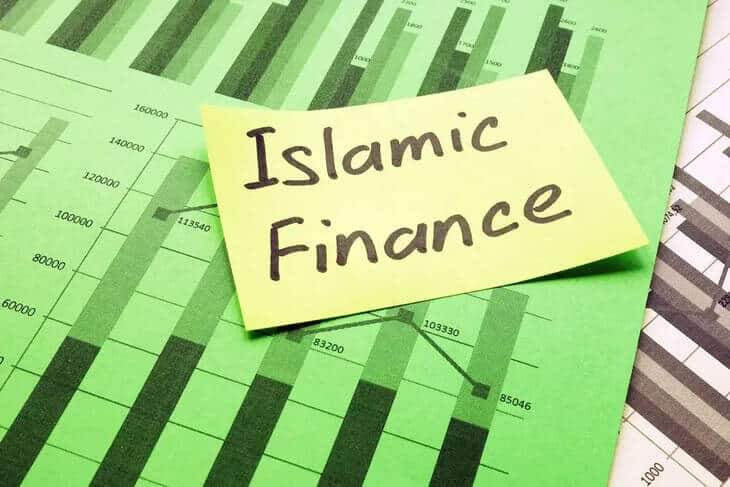One of the most important questions that many Muslim traders have is whether crypto futures trading halal or haram & Why?
Yes, Crypto futures trading is Haram, actually.
Muslims are very sceptical about how they live their life and conduct certain businesses. And their holy book, the Quran, has rules that govern how Muslims should deal with their money and investments.
According to Islamic religious beliefs, there are certain things that are considered haram or forbidden. But are crypto futures also forbidden in the religion?
Let’s find it out below:
Is Crypto Futures Trading Halal or Haram?
In Islam, crypto futures trading is considered Haram.
Islamic law prohibits speculations or riba-based transactions where one party seeks to make a profit from an increase in the price of an asset without taking ownership of the underlying asset.
As we already know, when we talk about trading crypto futures, we are trading a contract, not the actual asset. As a result, there is no ownership of the asset being taken by the owner.
Hence, traditional financial derivatives such as futures and options trading are generally considered Haram as per the Islamic finance rules.
Are Futures and Options Trading the same thing? Learn the differences between Crypto Futures vs Crypto Options
In crypto derivatives trading, the price of the asset is based on speculations that are considered Gambling, and it goes against Islamic principles. Hence, it is considered Haram.
Also, it is worth mentioning that some Islamic schools and institutions have issued fatwas ( religious edicts) that consider trading in cryptocurrencies as Haram due to their high level of volatility and lack of intrinsic value.
However, there are some people who argue that perpetual trading or perpetual futures contracts cannot be considered Haram. As in perpetual swaps, trading happens in real-time, and there is no interest element included.
But perpetual contracts are also considered Haram.
As it falls under the zero-sum financial instrument category, which is pretty much like a financial bet which is why perpetual swaps are also Haram.
Reasons Why Crypto Futures Trading Is Haram
- Charging Interest
In Islam, it is forbidden to pay or receive Interest or Riba. Muslims cannot charge Interest on debts or money owed.
And since, in crypto futures trading, there is a concept of leverage which is to borrow funds from the broker to open a position, and the broker charges for it.
A Muslim is paying Interest.
Hence, crypto futures is haram in Islam.
- Buying/Selling Debt
In a crypto futures contract, both buyers and sellers are obliged to buy or sell an underlying asset which is considered a debt.
And since trading debt is also forbidden in Islam as it is considered a form of riba. That’s why crypto futures are prohibited for Muslims.
- Cash settlement
Another reason why crypto futures is prohibited in Islam is that the contracts are cash settled.
When trading crypto futures, you are not trading physical goods but a contract. There is no involvement of any asset or needs to be delivered anywhere at the end of the contract period.
Hence it is considered a form of betting.
As a trader, you are predicting if the contract price will go up or the price will go down and based on it you will take a long or short trade.
In Islam, this kind of activity falls under Al-Maysir, or gambling, which is prohibited. As per the rule, when trading crypto futures, a risk is created as there is no involvement of goods or services.
Main Rules of Islamic Finance
Before we talk about whether trading crypto futures is forbidden or not, let’s learn about the main rules that Quran says about finance:
- No Muslim is allowed to invest in a business or organization that makes considerable gains from haram activities such as the sale of alcohol, gambling, drug industries, and more.
- Muslim investors should investigate a company or business thoroughly before investing in them.
- Muslims are not allowed to invest to earn through interest as it is considered haram.
- Muslim businesses and merchants must share profit and loss while receiving zero interest.
- Islam prohibits Muslims from investing in bonds and interest-driven ventures.
- Muslims are also not allowed to buy stocks of companies with high debt baggage.
Just like these ones, there are also a few other rules that prohibit Muslims from investing and earning from certain ventures.
Interested in Futures Trading? Know if you can lose more than you invest in crypto futures
FAQs
- Are Crypto Perpetual Futures Haram?
Yes, perpetual futures is haram in Islam. Perpetual futures are considered a financial bet which falls under the rule of Al-Maysir.
Also, in Islam, it is stated that only real things can be bought and sold. Since crypto futures are contracts with no physical assets involved, all types of crypto futures trading are considered haram.
- Is Staking in Cryptocurrency Halal?
In Islam, staking cryptocurrencies is also considered haram. The Quran prohibits Muslims from earning interest from their investments or loans.
And since in crypto staking, the investors enjoy returns on their digital assets. It is considered haram.
Conclusion
So that was a quick question: Is crypto futures trading halal or haram?
In Islam, Muslims are not allowed to earn any sort of interest or trade debts.
Hence, crypto trading, in general, is considered a haram thing.
But Muslims can consider cryptocurrencies as another form of money that can be used as a payment method.


